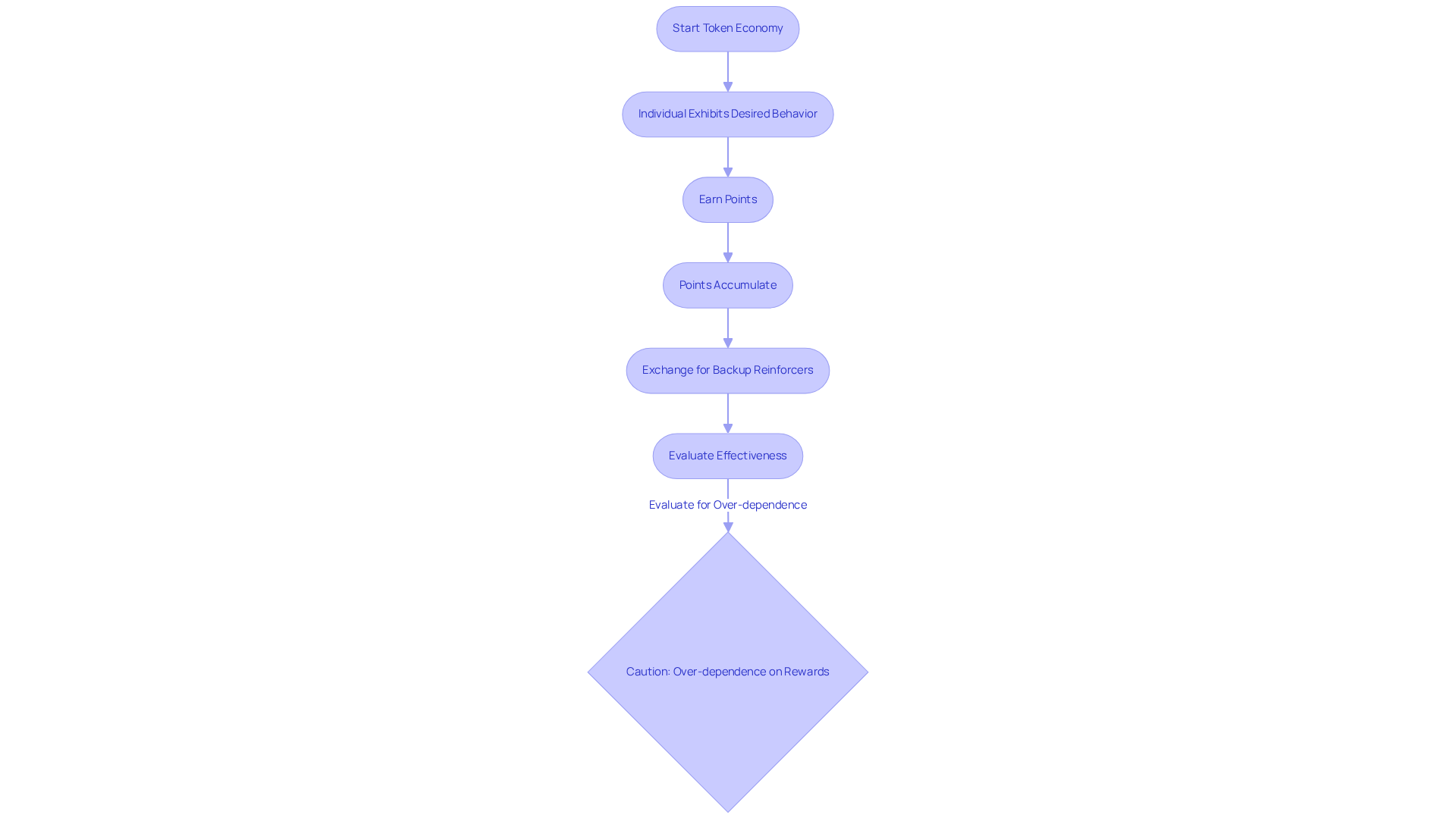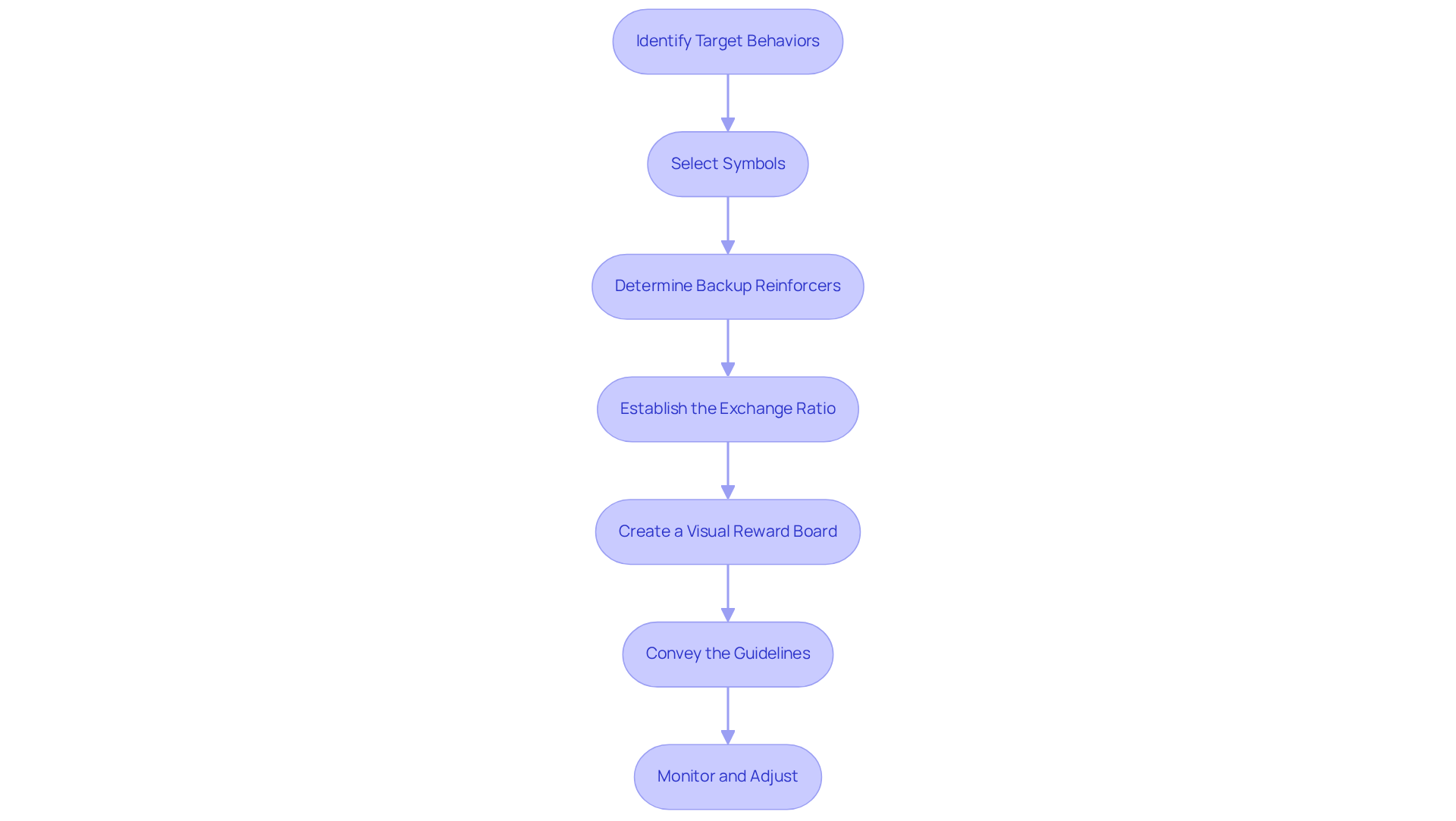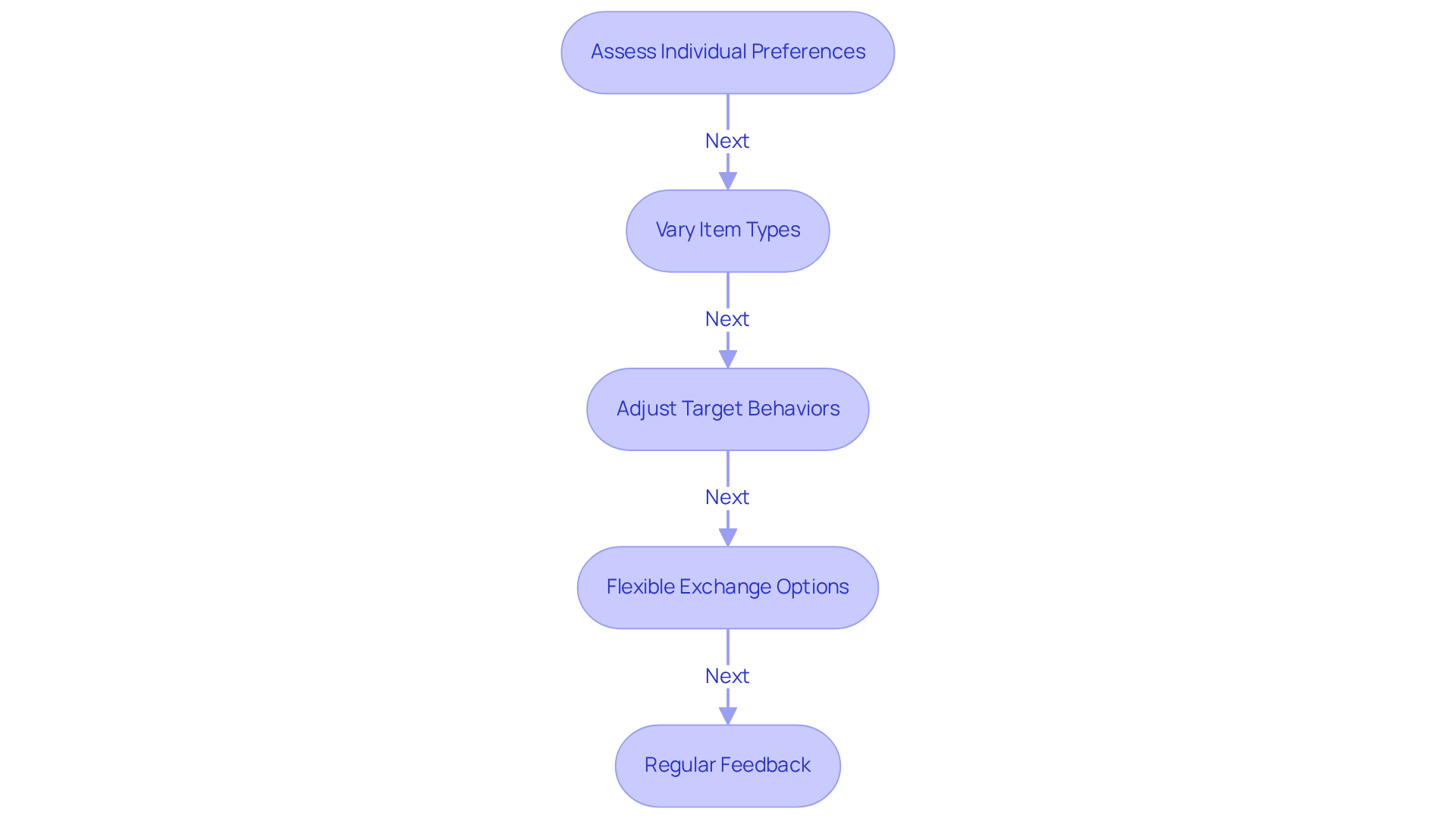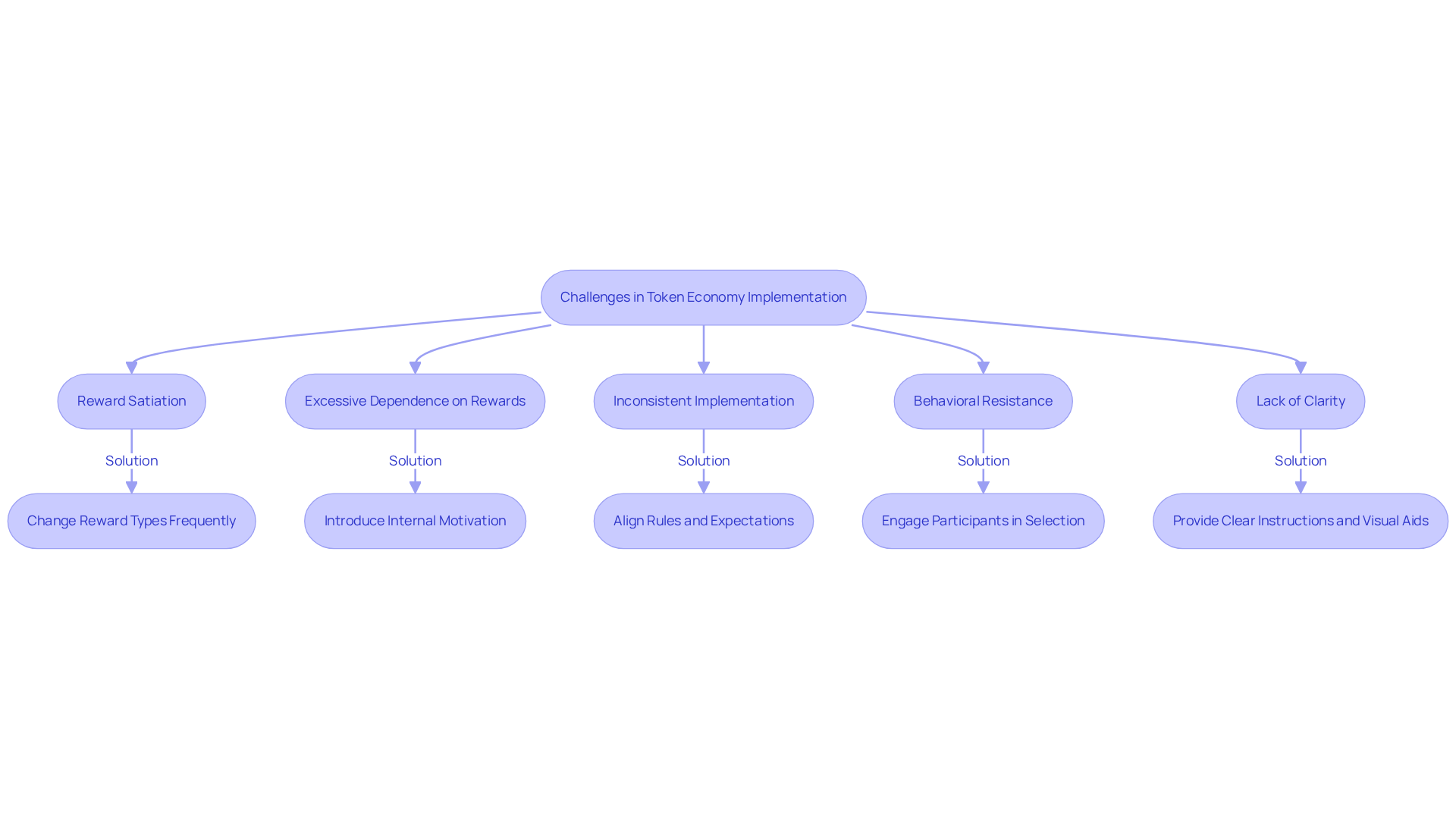July 6, 2025

The primary objective of this article is to delineate the effective steps for implementing a token economy within Applied Behavior Analysis (ABA) therapy. By:
caregivers can significantly enhance motivation and behavioral outcomes for individuals with autism. This structured approach not only fosters a more engaging therapeutic environment but also promotes measurable improvements in behavior. Caregivers are encouraged to adopt these strategies to elevate the efficacy of their interventions.
A structured reward system, known as token economy ABA, serves as a powerful tool in Applied Behavior Analysis therapy, facilitating positive behavior reinforcement for individuals, particularly children with autism. By earning tokens for desired behaviors, participants can exchange these for meaningful rewards, enhancing motivation and compliance.
However, the challenge lies in implementing this system thoughtfully; over-reliance on external incentives may undermine intrinsic motivation.
How can caregivers and educators effectively navigate these complexities to create a balanced and engaging token economy that fosters lasting behavioral improvements? This inquiry is crucial in ensuring that the benefits of such a system are fully realized.
A reward system, known as token economy ABA, is a structured reinforcement approach employed in Applied Behavior Analysis (ABA) therapy, where individuals earn points for exhibiting desired behaviors. These items serve as generalized reinforcers that can be traded for backup reinforcers, such as privileges, treats, or activities that the learner values.
Recent studies suggest that implementing a token economy ABA significantly improves task completion rates among preschoolers with autism, demonstrating its effectiveness in encouraging positive behaviors. For instance, consider a child who receives a reward for completing a homework assignment; this can later be exchanged for additional playtime or a preferred snack.
This system, known as , not only fosters compliance but also aids in teaching self-regulation and delayed gratification. However, is it not essential to implement reward systems thoughtfully? Over-dependence on external incentives can reduce intrinsic motivation. Therefore, incorporating meaningful reinforcers and regularly evaluating the system's effectiveness are crucial for achieving long-term behavioral improvements.

To effectively implement a token economy, adhere to the following steps:
Incorporating these steps is crucial, as research indicates that when recommended hours of ABA therapy are fully implemented with active caregiver participation in a token economy ABA system. As Dr. Lise Fox states, "ABA is a science-based practice that helps individuals with autism to live rewarding and productive lives while decreasing difficult behavior." Furthermore, Rachelle Sheely highlights that ABA establishes channels of communication and comprehension, which can be supported by a well-organized reward system.

Customizing a token economy requires careful consideration of several key factors:
By implementing these strategies, digital currencies can be customized to meet the diverse needs of learners, ultimately enhancing participation and achievement in ABA therapy.

Establishing a digital currency system presents several challenges that must be addressed effectively. Here are some common issues and strategies to overcome them:

Implementing a token economy in ABA therapy is a powerful strategy that can significantly enhance the learning experience for individuals, particularly those with autism. This structured reinforcement system not only encourages desired behaviors but also promotes essential skills such as self-regulation and delayed gratification. Recognizing the importance of thoughtful implementation allows caregivers and educators to create an effective environment that fosters positive behavioral changes.
Key steps for establishing a successful token economy include:
Customizing the token economy to fit individual needs is crucial, ensuring that the system resonates with each learner's unique preferences and motivations. Challenges such as reward satiation and excessive dependence on external incentives must be addressed, highlighting the necessity for consistent implementation and clear communication.
The significance of a well-structured token economy cannot be overstated. It serves not only as a motivational tool but also as a framework for teaching valuable life skills. By embracing the strategies discussed and remaining adaptable to the needs of each participant, caregivers can foster an engaging and effective learning environment. This commitment to individualized approaches will ultimately lead to more meaningful progress in ABA therapy, empowering individuals to thrive both in and out of therapeutic settings.
What is a token economy in ABA therapy?
A token economy in ABA therapy is a structured reinforcement approach where individuals earn points or tokens for exhibiting desired behaviors, which can later be exchanged for valued items or privileges.
How does the token economy system work?
In the token economy system, individuals receive tokens for completing specific tasks or demonstrating positive behaviors. These tokens can be traded for backup reinforcers, such as treats, privileges, or activities that the learner values.
What are the benefits of implementing a token economy in therapy?
Implementing a token economy has been shown to significantly improve task completion rates among preschoolers with autism and encourages positive behaviors, compliance, self-regulation, and delayed gratification.
Can you provide an example of how a token economy might work?
An example of a token economy is when a child receives a token for completing a homework assignment, which they can later exchange for additional playtime or a preferred snack.
Are there any potential downsides to using a token economy?
Yes, over-dependence on external incentives from a token economy can reduce intrinsic motivation. Therefore, it is important to implement reward systems thoughtfully and incorporate meaningful reinforcers.
What should be considered when implementing a token economy?
It is crucial to regularly evaluate the effectiveness of the token economy system and ensure that it incorporates meaningful reinforcers to achieve long-term behavioral improvements.
Our expert recruitment strategies and AI-driven sourcing ensure that you receive top-notch candidates quickly, without compromising on quality. Whether you’re looking for BCBAs, Clinical Directors, or RBTs, we’ve got you covered.